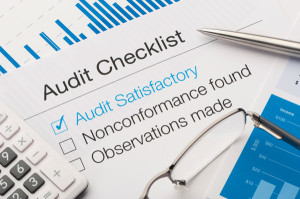
When You’ll Get Paid: You will only begin to see royalty payments once your label has recouped the money it spent out of pocket to record, manufacture, and promote your album. That said, you should begin to see royalty statements almost immediately. Most labels will send royalty statements twice per year, conducting accounting within 90 days after the end of June and December, with statements issued after the books are complete.
In the event that you feel as though your record label hasn’t paid you what you deserve, you want the ability to check the records. The review of your label to determine whether it is paying the proper amount of royalties and complying with relevant provisions of your contract is called an audit. Whether major label or indie, an audit provision is a staple of any good record contract. If you don’t have a stipulation in the contract that gives you this authority to audit, your ability to do so becomes much more difficult (but more on that later).
Audit Provision: If you’re signing a record label contract, it is recommend that you have an attorney review and negotiate the agreement on your behalf. As an example, here is a sample audit provision:
“Label will maintain books and records which report the sales of Records, on which royalties are payable to you. You may, but not more than once a year, at your own expense, examine those books and records, as provided in this paragraph only. You may make those examinations only for the purpose of verifying the accuracy of the statements sent to you. All such examinations shall be in accordance with GAAP* procedures and regulations. You may make such an examination for a particular statement only once, and only within one (1) year after the date when Label is required to send you that statement.”
Read this provision closely – you’ll see that, while giving you the right to audit, the provision is still highly restrictive (i.e. limits audits to once per year and only for one year after statements are issued). Whenever you can, broaden the scope of your audit provision. Labels will add as many limiting provisions as possible, making sure they have the right to determine when, where and how the audit takes place, and requiring any accountant examining the books to sign a letter of confidentiality. Further, as in the example above, labels will require that an auditor be paid from the band’s pocket (discouraging audits that allow payment on a contingency of the audit proceeds). A flat fee audit can be incredibly expensive and cost prohibitive. There’s no mystery behind why this provision is included – the label is discouraging your ability to audit by making it too expensive to do so.
* GAAP stands for Generally Accepted Accounting Principals, and is the general framework accounting in any given jurisdiction. In the event that you want a review of your label’s books, hire a certified public accountant (CPA) to handle your audit (and preferably one with knowledge or the record industry).
The Audit: Audits are commonplace in the recording industry and can take anywhere from a day to several weeks, depending on the complexity of the numbers and records involved. Generally, accounting issues at record labels can be the result of (1) human error; (2) errors based upon company procedure; and (3) misinterpretation of your record agreement. A fourth category – unscrupulous business practices – is typically less of an issue, but always one to look out for. While most major artists will audit their label at least once – if not several times – over the course of a contract, it is less common for smaller labels. That said, you should have no hesitation in the event you feel an audit is required. Big business or small, each label should maintain detailed records of all income, overhead, and disbursements.
If you choose to audit your label, make sure to abide by the timelines and guidelines set forth in your contract. Failure to do so can render any errors void. In the event that you don’t have an audit provision in your contract, have a letter written to your label requesting an audit and specifying the time and place of the review. If you get no response, send a follow up. In the event that your label is unwilling to allow an audit, you may have to bring a legal proceeding against your label for the ability to inspect its books.
Adam Barnosky is a Boston-based attorney and writer. For industry trends, legal updates, or to request an upcoming Legal Pad topic, find him on Twitter @adambarnosky.
DISCLAIMER: The information contained in this column is general legal information only and should not be taken as a comprehensive guide to copyright law. Consult your attorney for all specific considerations.